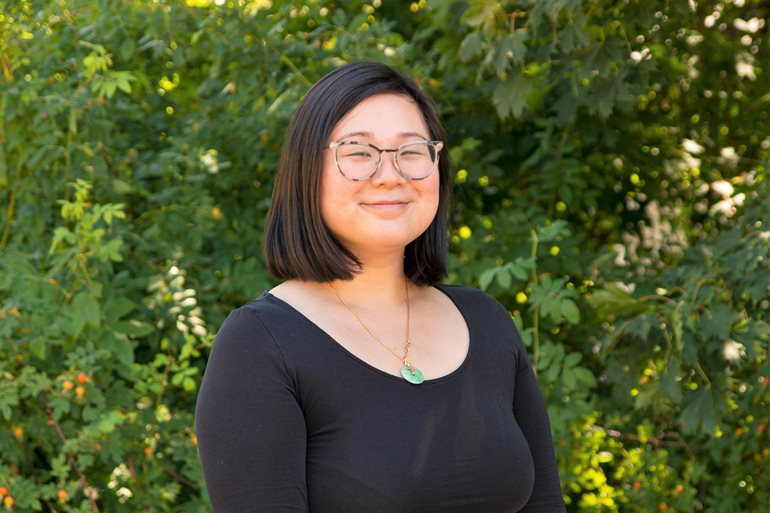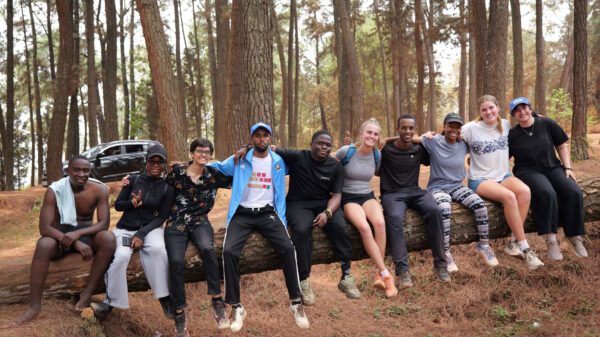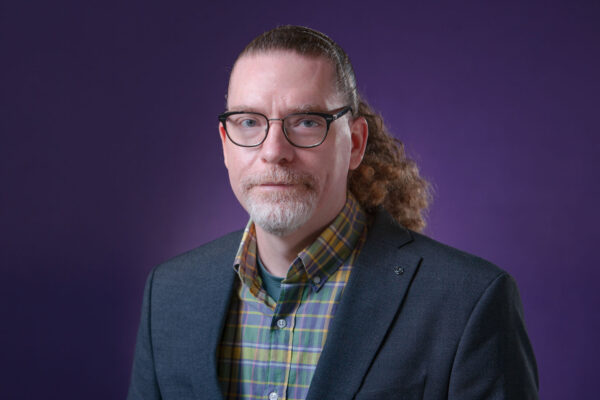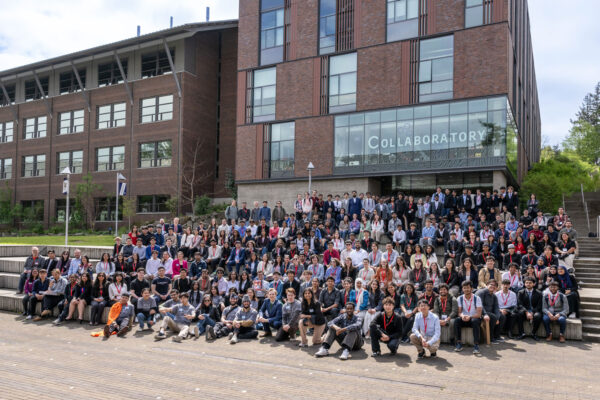
How has work in Student Engagement & Activities changed since remote operations began at UW Bothell? Brenda Đào, program manager, answers a few questions from Director of Communications Maria Lamarca Anderson.
Q. What would you normally be doing now and where?
A. Right now I would be at the Activities & Recreation Center, welcoming students back to campus and being as excited as they are about the beginning of autumn quarter. Student leaders would be back and working, and there would be a great buzz in the air. A lot of hugs and squeals, for sure.
I would also be meeting one-to-one with student leaders, getting student clubs ready for the year and preparing for Welcome Week festivities in the ARC and on the Plaza.
Q. What are you trying to work on today?
A. Today is the first day of classes, and since we’re in remote operations I’m welcoming students back virtually. I’m also collaborating with faculty advisers on our student-run media: the Husky Herald and UWave Radio. Our students’ voices will be especially key as we count down to the general election so I’m inspired to help them get hands-on journalism experience.
This week, as we have for the past month, we’re preparing for the virtual club fair, which is going on for a full week on the UW Bothell Club Fair Instagram account. I hope our campus community will participate in the fair by tuning in.
Q. What adjustments have you made to fulfill your work responsibilities?
A. Ten percent of my job is serving as the resident director at Husky Village, so I’ve stayed on campus throughout the pandemic. I basically moved my work station from my office at the ARC, and this is where I’ve been working from ever since. I added plants and a grow light to make the compact space more inviting and comfortable, a place where I want to be for most of the day.
I’m used to being close to campus, but it’s so different without students. I miss the life and energy they bring to our environment. I’m glad that, as an RD, I still connect with some of them in person.
A big adjustment has been how we plan ahead. Normally we would plan for the whole year, with just about all activities in person. Now we have to take it quarter by quarter, sometimes week to week.
Our student trainings are online, obviously. Some are asynchronous and self-led, others are synchronous on Zoom. This year we had three weeks of training from 10 to 3 every day. I think it was a little bit of a challenge for all of us, but it worked out, and our students are preparing themselves to get ready for the quarter.
Even after six months, I’m still adapting to working from home. I have yet to form new habits. Normally I would constantly be on the go, walking around the ARC and campus for meetings. I’m starting to feel like my body is not how it was, and it’s taken its toll not only physically but also mentally.
Q. What are you doing to care for yourself or for others?
A. In an attempt to walk more, I have one-to-one meetings by phone so I can walk and talk at the same time. That’s a recent change, and I’m really looking forward to how it will change up my day.
I’ve told myself and my team to give each other and ourselves a lot of grace. Our mind frame is in survivor mode, and besides surviving remote operations, we are trying to survive the pandemic, systemic racism and climate change.
I have said “no” to projects and requests that I would normally jump at the chance to say “yes” to. Even those I’m passionate about have had to take a pause. This is no time to take on more work when I have to completely re-learn how to do my job in a completely different way. That in itself is a whole other job.
Q. Do you have a change of perspective to share?
A. After last night’s debate, I’m more aware of everything that’s happening in our country and our place in the world, and how heavily they impact the work we do and how we support our students, especially our students of color. As an Asian woman, I’m concerned about how these turmoils are going to play out and how they will affect us.
We are living in history now, history that may change the course of our country in two months. I’m more appreciative of my role working with student media and looking even more enthusiastically to helping students navigate real facts versus fake news.
Q. What other thoughts or feelings do you want to share?
A. My heart is taking things day-by-day, piece-by-piece. Remember that the work will still be there — it will always have to get done — but it might not be done in the same way. Quality and quantity will look different. We need to normalize that, or we will burn out.


